The Ministry of Health received an Official Dispatch from the National Assembly's Committee for People's Aspirations and Supervision requesting a response to voters' petitions sent before the 9th session of the 15th National Assembly, including a number of petitions from voters of Ha Tinh province.
In particular, voters proposed issuing financial support policies, expanding investment in preventive medicine , establishing an early warning system and improving the quality of primary health care to ensure good care for people's health; and investing appropriately in medical equipment for grassroots health care .
Currently, the preventive health system has not received adequate investment; most localities have not allocated 30% of the health budget for prevention; some infectious diseases are increasing, the expanded vaccination rate has not met requirements; food poisoning is still complicated.
Ministry of Health promotes digital transformation in preventive medicine
Responding to voters, Minister of Health Dao Hong Lan said that regarding support and investment policies for preventive medicine, in response to voters' recommendations on issuing financial support policies and expanding investment in preventive medicine, the Government has directed the Ministry of Health to preside over the development of the National Target Program on health care, population and development for the 2026-2030 period, expected to be submitted to the National Assembly for consideration and approval.
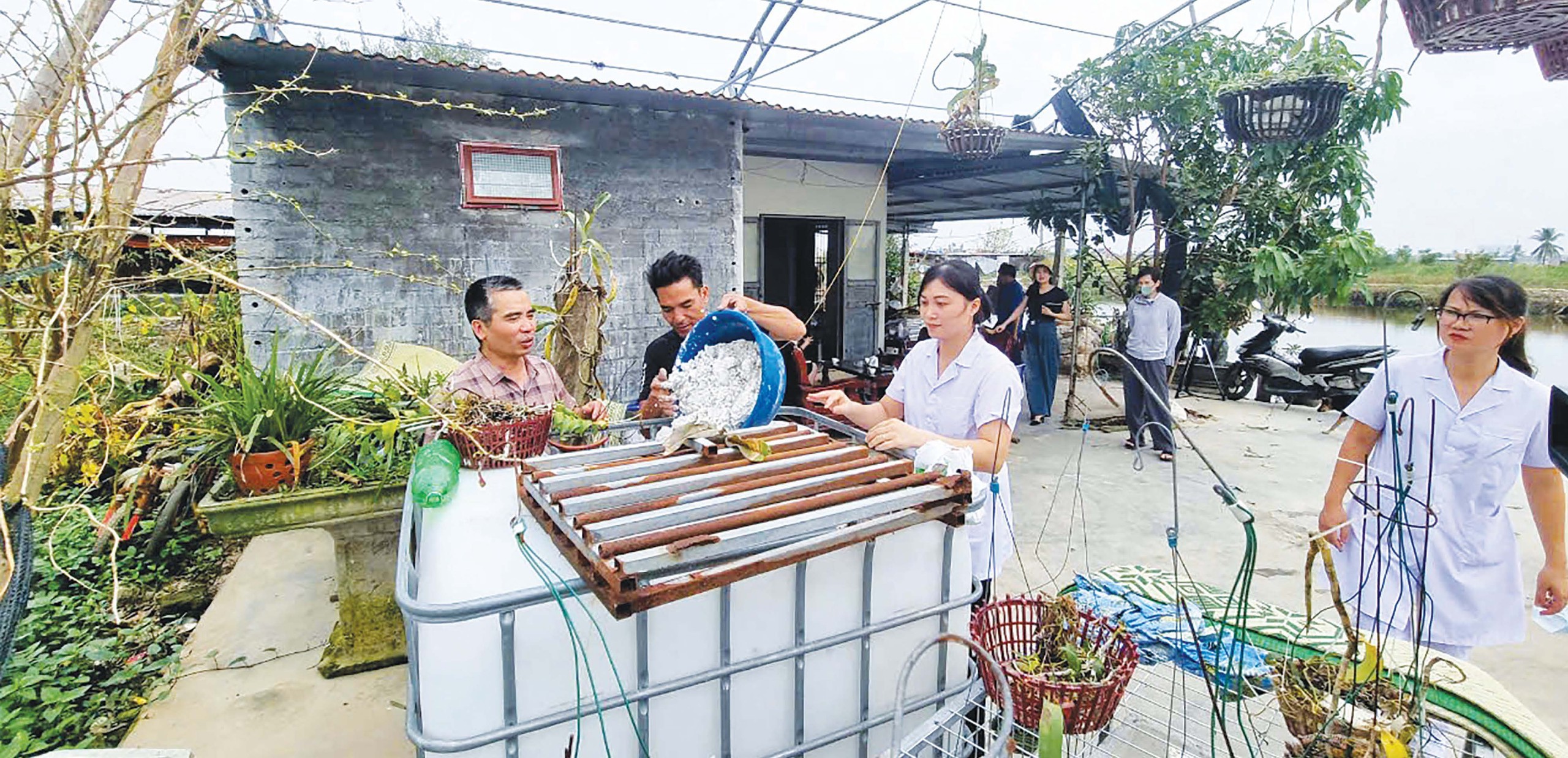
The Ministry of Health applies the event-based surveillance system (EBS) combined with indicator-based surveillance (IBS), deployed synchronously from the central to the commune level. This system enhances the ability to detect early disease risks in the community and medical facilities, while promoting coordination between the preventive and treatment sectors. (illustrative photo)
The program is designed to ensure that all people have access to quality primary health care services, preventing diseases early, remotely, right at the grassroots level.
Specific goals include: ensuring health security, encouraging people to proactively take care of their health, achieving replacement fertility, balancing the sex ratio at birth, improving population quality, adapting to the trend of population aging and meeting the demand for quality human resources for socio-economic development.
The program includes component projects focusing on improving capacity for primary health care, preventive medicine, and programs to prevent and control infectious and non-communicable diseases.
The Ministry of Health is coordinating with the United Nations Development Programme (UNDP) and the World Health Organization (WHO) to implement a project funded by the Green Climate Fund (GCF) to build a health and climate data monitoring system.
The project establishes a data sharing mechanism between the Ministry of Health and the Ministry of Agriculture and Environment, develops a national database, and identifies early warning thresholds for diseases such as dengue fever, respiratory and cardiovascular diseases.
At the same time, the Ministry of Health promotes digital transformation in preventive medicine, applying artificial intelligence (AI) technology and big data analysis to collect information from many sources such as communities, medical facilities, businesses, social networks and epidemiological investigation programs.
These technologies support forecasting and monitoring outbreaks, improving the effectiveness of directing and operating epidemic prevention work.
Regarding vaccine supply, after the interruption period due to the COVID-19 pandemic (2020-2023), the Ministry of Health has issued many documents to direct and remove difficulties, ensuring adequate supply of vaccines in the Expanded Immunization Program.
In 2024, the full vaccination rate reached 96.3%, exceeding the planned target of 90%. The measles vaccination campaigns in 2024 and the first and second phases in 2025 achieved and exceeded the target, contributing to effective control of the measles epidemic.
In the coming time, the Ministry of Health will continue to improve the policy mechanism to proactively supply vaccines and prevent infectious diseases with the risk of causing periodic epidemics such as measles, whooping cough, and diphtheria, while ensuring the vaccination rate meets the set target.
Strengthening the ability to detect disease risks early in the community and health facilities
To improve preventive medicine capacity and meet challenges such as increasing epidemics, food poisoning and increasing vaccination rates, the Ministry of Health has implemented many synchronous activities, the Ministry of Health said.
Since 2018, the Ministry of Health has applied the event-based surveillance system (EBS) combined with indicator-based surveillance (IBS), deployed synchronously from the central to the commune level. This system enhances the ability to detect early disease risks in the community and health facilities, while promoting coordination between the preventive and treatment sectors.
Health units collect, monitor, verify and evaluate warning signs, propose timely response measures to minimize the impact of the epidemic on public health.
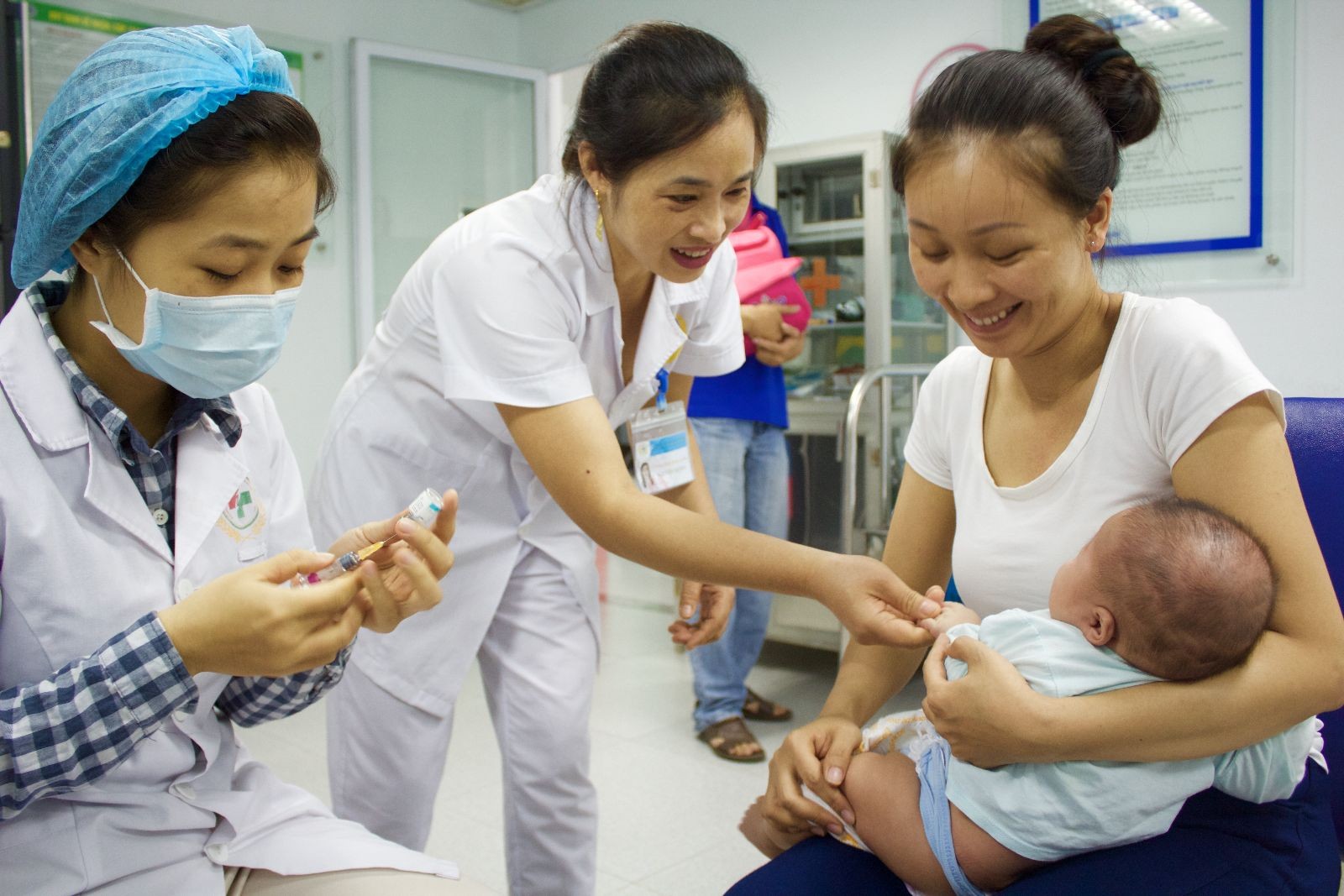
The Ministry of Health will continue to improve policy mechanisms to proactively supply vaccines and prevent infectious diseases that have the risk of causing periodic epidemics...
The Vietnam Public Health Emergency Operations Center (PHEOC), which was established from the EOC Office in 2013, plays an important role in information management, resource coordination and policy advice on epidemic prevention.
PHEOC has proven effective during the COVID-19 pandemic and is being replicated in the provinces, with a status assessment report to support the establishment of provincial EOC offices in the coming time. The Ministry of Health also coordinates internationally under the International Health Regulations (IHR 2005), strengthens the detection, warning and response to public health events, and coordinates with countries to prevent and control epidemics.
In 2025, the Ministry of Health will issue a Plan for epidemic prevention and control, closely monitor the epidemic situation at home and abroad, and implement measures such as early detection and thorough handling of outbreaks, especially for high-risk diseases such as dengue fever, hand, foot and mouth disease, COVID-19, measles, whooping cough, and diphtheria.
Specific solutions include: organizing catch-up vaccinations, catch-up vaccinations, updating vaccination information on the national system; training to improve the capacity of medical human resources; ensuring logistics, drugs, vaccines, and equipment according to the "4 on-site" motto; inter-sectoral coordination with the Ministries of Agriculture, Environment, Education and Training, Culture, Sports and Tourism to monitor animal diseases, deploy school health care, communicate disease prevention and ensure safety during the 2025 summer tourist season.
In particular, in the context of hot and humid summer and high travel demand, the Ministry of Health directed localities to allocate funds from local budgets, implement peak action plans to prevent dengue fever, hand, foot and mouth disease, and COVID-19 in June-July 2025, and at the same time strengthen the management of vaccination subjects, ensuring that no children are left out of the Expanded Immunization Program.
The Institutes of Hygiene and Epidemiology and Pasteur coordinate with localities to analyze risks, propose appropriate epidemic prevention measures, and prepare plans to respond to epidemic situations in major events in 2025.
These efforts aim to upgrade basic medical facilities and equipment, control food poisoning and minimize the impact of infectious diseases, especially in areas at risk of outbreaks.
Source: https://baolaocai.vn/bo-y-te-tang-cuong-phat-hien-som-cac-nguy-co-dich-benh-tai-cong-dong-va-co-so-y-te-post650132.html


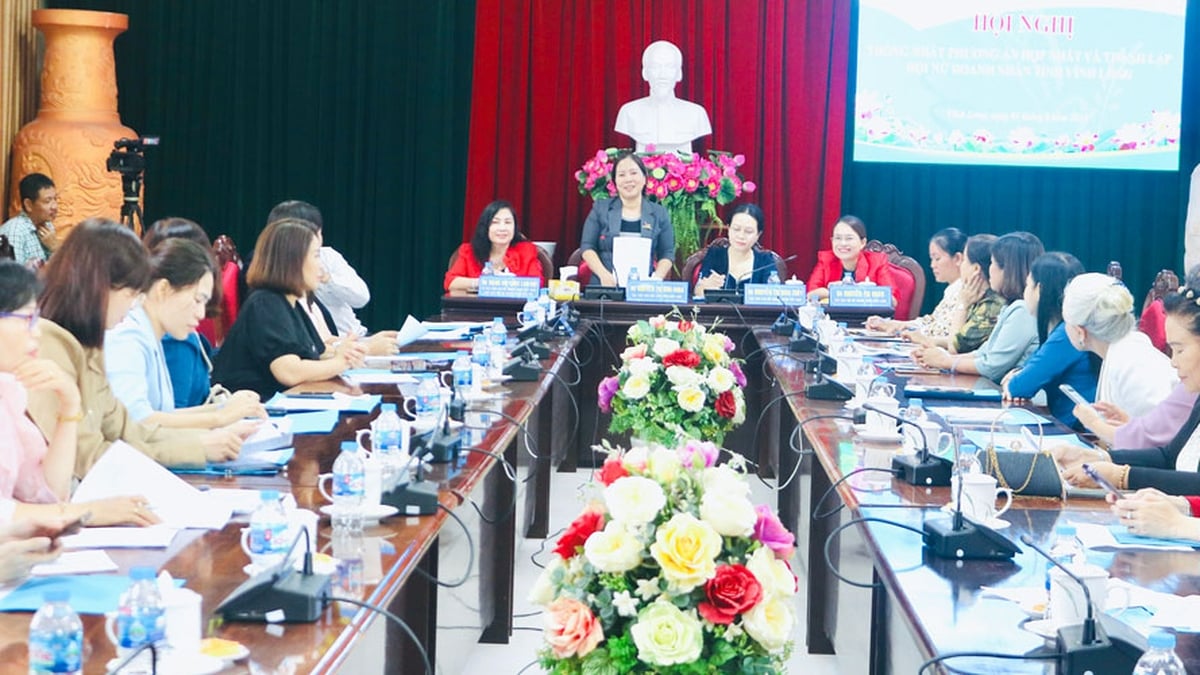
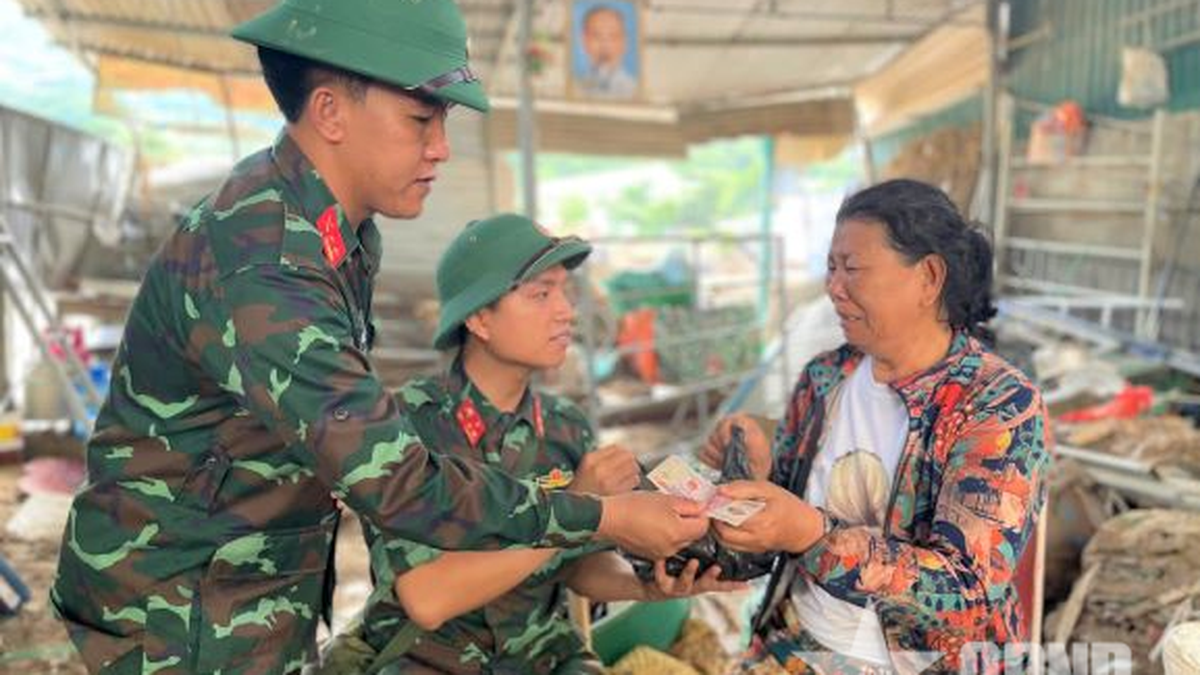



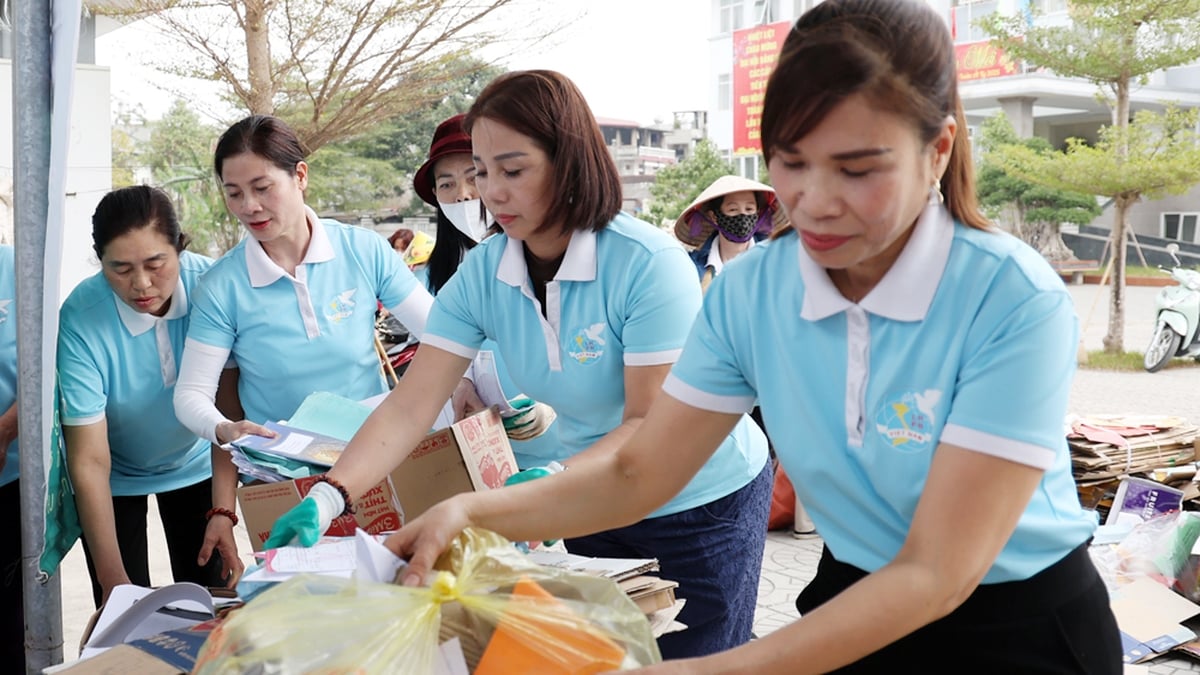


























































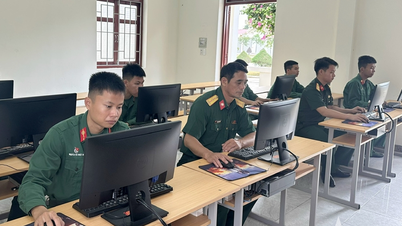






























Comment (0)